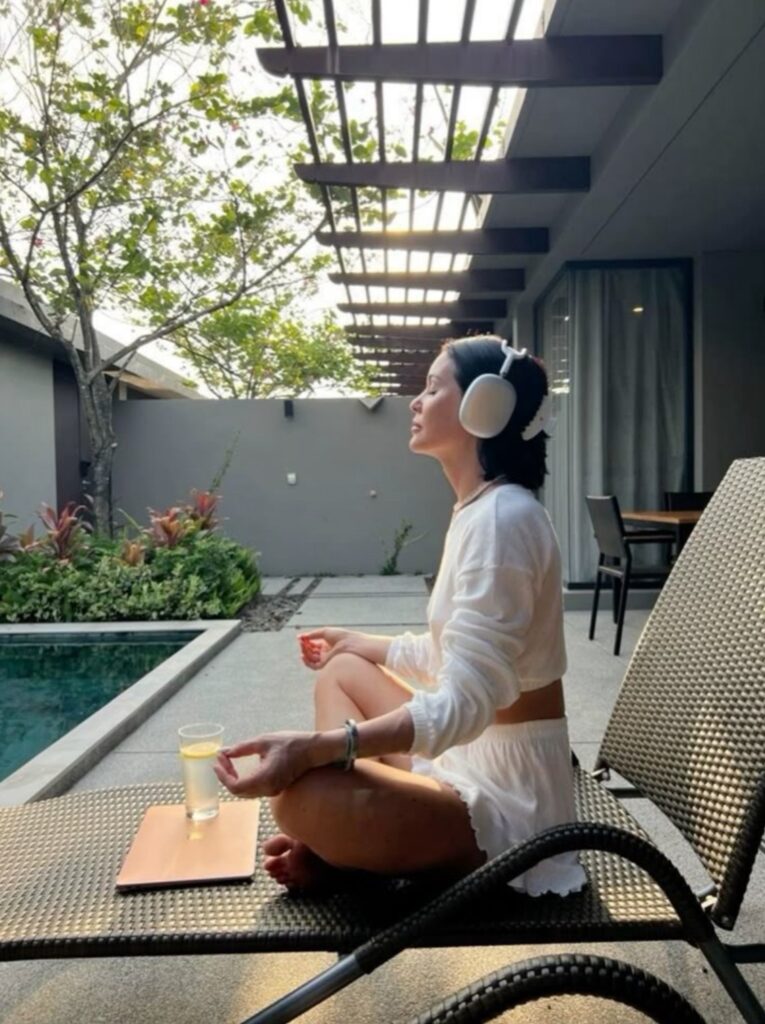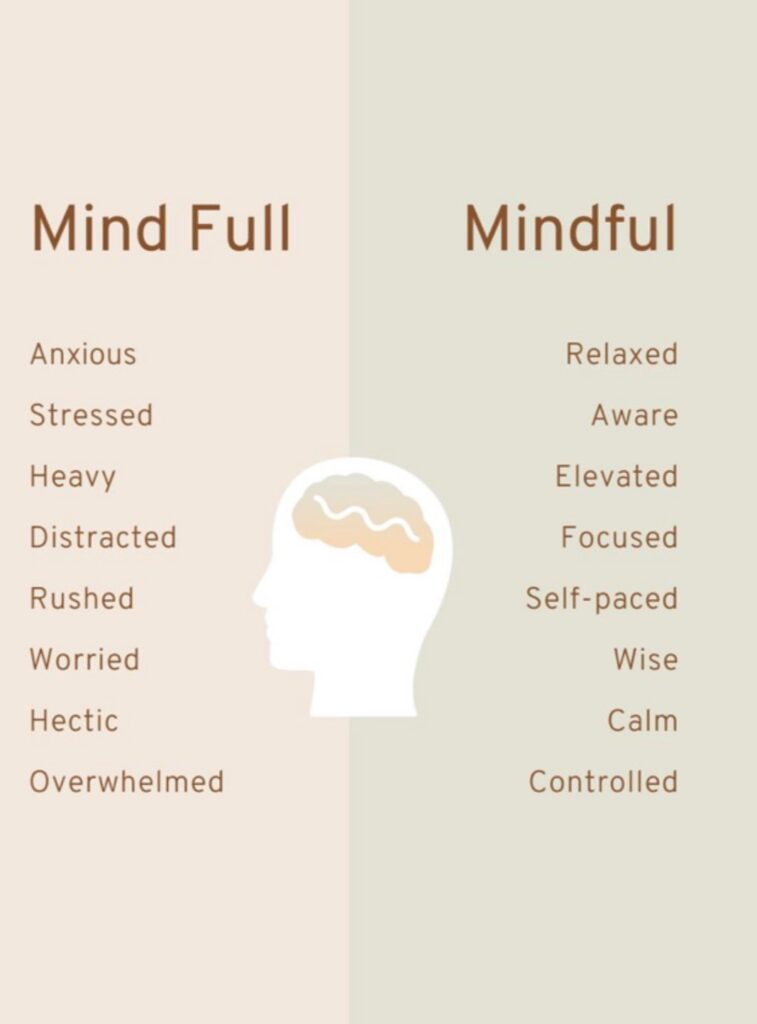Financial and career success doesn’t come from quick-fix investments or short-term tricks, no matter how often they’re advertised. We’ve all seen those promises of fast returns, but they rarely deliver lasting results. Real, sustainable growth comes from something far more powerful—and far more reliable: investing in yourself. This is the one investment that pays off a hundredfold, even a thousandfold, compared to the fleeting opportunities that are constantly pushed at us.
What does that mean in practice? It means choosing to develop your knowledge, strengthen your skills, and shape your career with intention. And no, this isn’t just another motivational cliché. It’s about taking bold, concrete steps: learning a brand-new profession, mastering advanced expertise in your field, or leveling up in a way that expands your opportunities. Every skill you add and every strength you grow multiplies your value in ways no short-term investment ever could.
As women, this is especially empowering. You don’t have to wait for someone else’s approval, or depend on promises that don’t serve you. By committing to your own growth, you take control of your financial future and your professional destiny. Every course you complete, every new project you take on, every skill you refine—that’s wealth you carry with you forever.
Quick gains might look tempting, but they don’t build true freedom or confidence. Long-term success is built step by step, with consistency and vision. And when you choose to invest in yourself every single day, you’re not just building income—you’re building independence, resilience, and a future on your own terms. That is the real return on investment.

This article isn’t just another cliché about ‘combining personal growth with financial awareness.’ It’s about real growth. Because let’s be honest: if your values aren’t aligned, if your mindset isn’t on the right frequency, no amount of budgeting or planning will save you. You’ll just keep running in circles.
First things first: before you can manage your money, build a career, or grow a business, you need to be on the right track mentally. Even the best value system won’t help if your inner state is off. Being out of alignment leads to frustration, wasted effort, and endless setbacks.
So my goal is simple: to guide you back on track—starting with your mind.

Understanding Real Health and True Learning
You’ve probably heard phrases countless times like ‘live a healthy lifestyle,’ ‘read more,’ or ‘never stop learning.’They’re everywhere—on TV commercials, on social media, even in conversations with friends. At first they may sound inspiring, but after being repeated a thousand times, they turn into background noise rather than genuine advice. The media has pushed these messages so hard that they’ve become clichés. And the biggest problem with clichés is that they often lose the grain of truth that may once have been inside them.
Take the phrase ‘healthy lifestyle.’ What does that even mean today? For some people it’s nothing more than expensive gym memberships, perfectly arranged salads, or the latest wellness trend being sold by influencers. But real health isn’t about looking like you just walked out of a fitness commercial. Real health might mean having the energy to play with your kids, finding a way to manage stress that actually works for you, or simply getting a full night’s sleep. The media’s version of health is often more like a fantasy life for wealthy husbands’ wives, built out of childhood fairy tales—sparkly and staged for display. But in real life, health is much more down-to-earth, unromantic, messy, personal—and it certainly can’t be measured in likes or followers.
And then there’s the phrase ‘read more.’ At first, it sounds like great advice. Reading is important, right? But if you think about it, piling up books or rushing through them doesn’t necessarily make us wiser or happier. I’ve even heard it said that your karma can decline over time if you’re feeding your mind with the wrong books. There’s a line I once heard that burned itself into my memory: ‘Don’t fill your head with unnecessary books.’ At first it sounded strange, almost wrong—how could a book ever be unnecessary? But the more I reflected on it, the more sense it made. What matters isn’t how many books we read, but which books we let into our minds, for what purpose, and with what awareness. Some books nourish, inspire, and open up new perspectives. Others are just noise.

So if we blindly follow the ‘read more’ slogan, we risk missing the point altogether. Reading isn’t about quantity, it’s about depth. Sometimes a single well-chosen book, read slowly and with reflection, can teach more than twenty books skimmed in a rush. The same is true for learning in general: it’s not about endless accumulation of information, but about how we actually weave knowledge into our lives.

And maybe that’s the bigger lesson hidden behind all these slogans. Instead of letting the media decide what health, growth, or knowledge should look like, we need to define it ourselves—based on clear-eyed, personal results. We’re allowed to question advice that sounds positive on the surface. We can ask ourselves: does this actually help me? Does it fit my life, my values, my real needs?
When we take time to reflect, we realize that living well isn’t about chasing every trend or checking off every motivational phrase. It’s about making conscious choices—about how we care for our bodies, what we feed our minds, and how we spend our time. And that realization, all by itself, is freeing. It gives us permission to tune out the noise, listen to our inner voice, and build a lifestyle that is meaningful, authentic, and truly our own.

- Don’t confuse real health with media buzzwords. True health comes from balance—physical, mental, and emotional. It involves proper nutrition, regular exercise, adequate rest, and building mental resilience.
From childhood, everyone hears that “sleep is important,” but hardly anyone really knows what that means. True, healthy sleep is often disrupted by the parents themselves. That’s why it’s essential to avoid any kind of noise or light while sleeping.
Even a small disturbance—a sound, a rustle, anything—can break your sleep cycle. And once a cycle is disrupted, it can affect your sleep quality for an entire month. - Understand your own values and meaningful learning. Terms like “core values” or “true value” can feel abstract or foreign. Take the time to translate these into practical concepts that fit your daily life. They are important, but your personal culture and experience shape how they are applied.
The goal is to make health and learning tangible, so they are part of your daily life and guide your financial and career decisions.

Why Financial Awareness and Career Development Matter
Financial awareness is not about the stock market or bonds—it’s about knowing how you spend your energy, where your money goes, and which skills to develop for long-term success.
A conscious approach to your career and finances offers:
- Stable income and long-term career opportunities built on your skills.
- Independent decision-making—you won’t rely on media hype or fleeting trends.
- Intentional life management—your actions are aligned with your personal growth and professional goals.

Mental Well-Being and Smart Career Decisions
Your mental and physical health directly affects how well you make decisions. Stress, burnout, or poor health can lead to impulsive choices and make it difficult to stick to long-term career strategies.
Supporting Your Mental and Physical Health
- Sleep and Rest: Quality rest improves focus and helps you make better decisions. Truly restful and healthy sleep is only possible when a person sleeps alone. Sharing a bed prevents uninterrupted sleep, which is 100% certain, and can only lead to unhealthy rest. Therefore, a separate bed is essential.
- Nutrition and Exercise: Fuel your body and mind to sustain energy for career and personal growth.
- Mindfulness and Relaxation: Meditation, yoga, or other mental exercises sharpen focus and patience.
- Meaningful Learning and Values: Identify what truly matters to you and let your actions reflect that, instead of following media trends.

Creating a Conscious Budget for Personal Growth
There are two common money-management styles:
- “Spend as it comes” type – people who don’t plan and spend spontaneously, without keeping track.
- Type B, the planner – very deliberate about their expenses at the start, but the final accounting, the actual flow of money, often slips through their fingers. So even with planning, control at the “end” is weak.
The common issue for both types is the lack of comprehensive tracking. Even planners often record some of their income and expenses, but the full financial picture—where every dollar actually goes and what remains—is often missing.
This is actually very common: for many people, financial planning only covers the beginning—“what I intend to spend and on what”—but the feedback and full accounting are neglected. As a result, it’s hard to realistically see how much was saved or where the money went.
Budgeting is not just about cutting costs—it’s about aligning your spending with your goals and personal development.
- Track your income: Know exactly how much money you have each month.
- Analyze your spending: Identify which expenses truly support your skill-building and career development.
- Set goals: Short, mid, and long-term goals that focus on growing your abilities and knowledge.
- Optimize: Reduce spending that doesn’t add value and invest in courses, workshops, or mentorship.

Example Monthly Budget for Personal Growth
Housing: $1,200 – Rent + utilities
Food: $400 – Healthy, energy-supporting meals
Transportation: $150 – Commuting, training courses
Learning/Development: $500 – Books, online courses, workshops
Fitness/Wellness: $150 – Exercise, yoga, mental health
Miscellaneous: $100 – Small, flexible expenses
This approach ensures you invest in yourself first, which is the real driver of long-term financial and career growth.

The True Return on Investment: Yourself
The real return is not in stocks, bonds, or short-term financial products. The highest return comes from investing in your own skills and knowledge.
- Developing marketable skills: Your skillset creates long-term income potential far beyond any financial product.
- Continuous learning: Gaining experience, solving problems, and expanding your expertise multiplies career opportunities.
- Conscious decision-making: Relying on your own abilities protects you from misleading trends or short-sighted advice.
Why Your Attention Is Often Diverted
Media, advertising, and social trends often distract you from the real path to growth. Low-yield products or trending advice create the illusion of action while true value comes from your personal development and skill-building.

How to Intentionally Build Your Financial and Business Life
- Continuously develop marketable skills.
- Learn new technologies, tools, and methods.
- Practice self-control and conscious decision-making.
- Invest in yourself: Courses, books, mentorship, or hands-on projects.
- Track your progress: Know which investments of time and energy give the highest returns—your personal growth is the ultimate ROI.

Integrating Career Growth and Productivity
Maximizing your potential also means learning how to work smarter and grow professionally:
- Time management: Prioritize high-impact tasks that build your expertise.
- Networking: Connect with mentors, peers, and professional communities.
- Entrepreneurial mindset: Seek opportunities for innovation, leadership, or side projects that increase your value.
- Personal branding: Position yourself as knowledgeable and capable in your field.
These strategies not only increase career earnings, but also make you more visible to opportunities and business collaborations, which aligns with AdSense-friendly keywords like “career growth” and “entrepreneurship.”

Combining Health, Mindset, and Skill Development
Your physical health, mental well-being, and professional skills form a triangle of success:
- Health fuels energy:
Proper nutrition and exercise support mental clarity and productivity. But before anything else, a full physical check-up is essential, because many people think they’ve been healthy their whole lives, when in reality they may have untreated conditions, allergies, asthma, or other issues. Mental health evaluations are just as important, since almost everyone assumes they’re fine emotionally, yet very few truly are. If everyone were truly okay, the world around us would be a much happier place—and unfortunately, that’s rarely the case. - Mindset drives decisions: Self-awareness and intentional habits help you make better career and financial choices.
- Skills create opportunity: Knowledge, competence, and continuous learning increase earning potential and business influence.
Summary
Financial awareness and career success do not depend on stocks, bonds, or financial gimmicks. Yet, disproportionately much emphasis is placed on these flashy things – and not by accident. Very few people talk about the fact that real growth comes from investing in your own work, developing your skills, and committing to continuous personal development. Hardly any attention is given to this, because talking about your own work and improving in it isn’t “trendy.” But by focusing on your health, mindset, and skill development, you can maximize your income, career opportunities, and business potential – without relying on the hyped-up, flashy financial stuff. Yes, it’s all designed that way.
Don’t let distractions control your path. Invest in yourself, stay intentional, and make conscious decisions—these are the true keys to long-term financial, business, and personal success.
